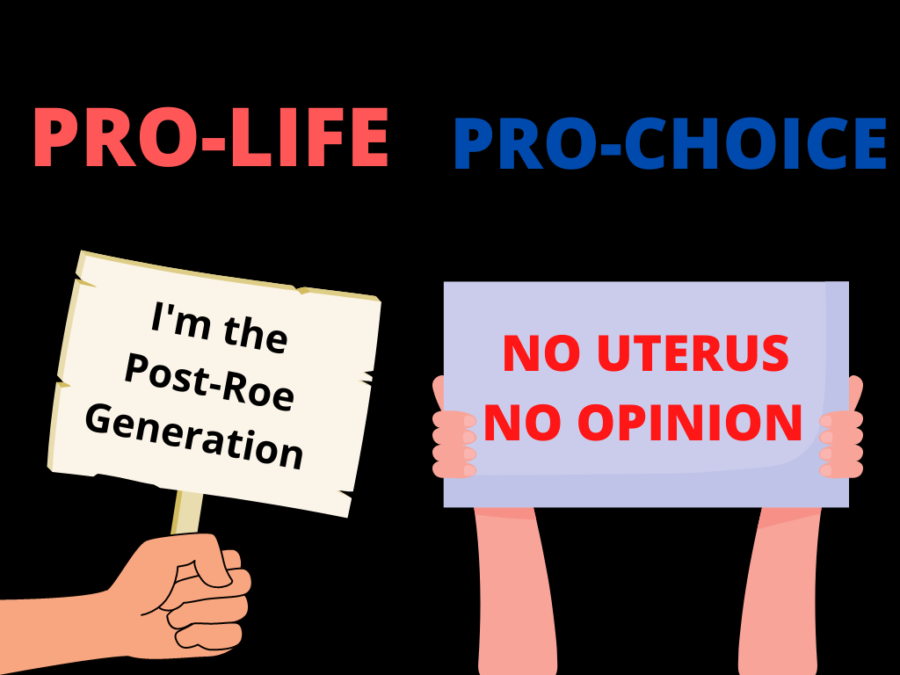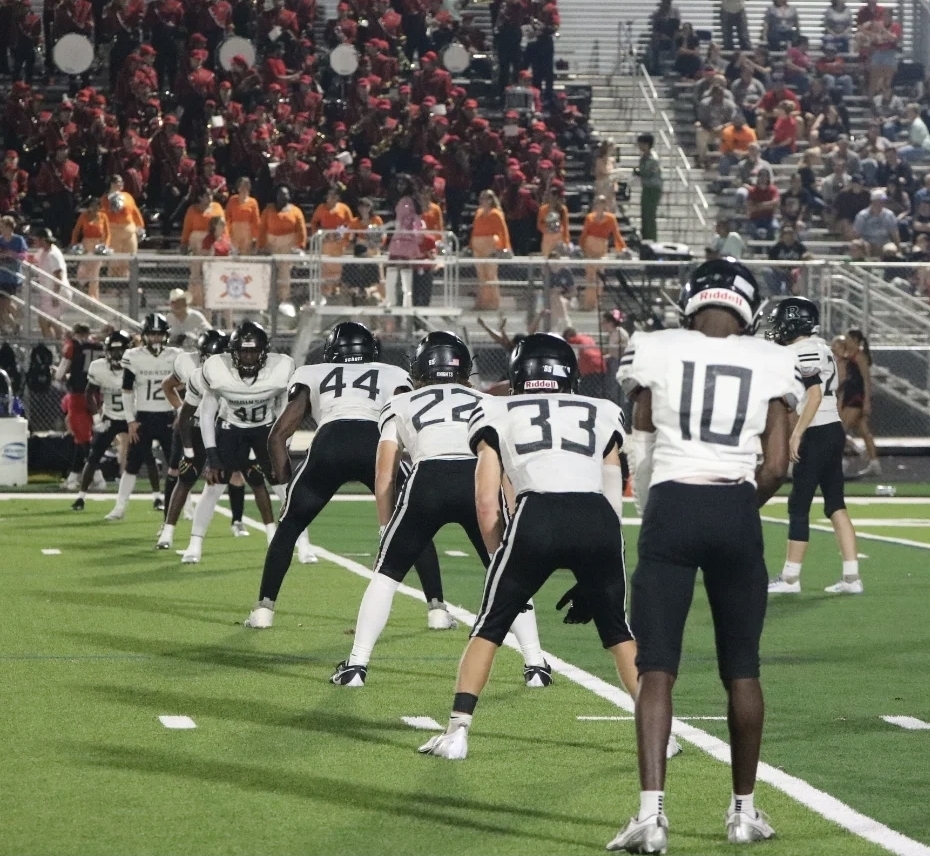Back to School Issue: Roe v. Wade Overturned
On Friday, June 24, the U.S. Supreme Court overturned Roe v. Wade in a landmark 5-4 decision.
Photo Charlotte Stone
Graphic depicting the Pro-life and Pro-choice ideologies clashing as contention rises due to the overturning of Roe v. Wade.
July 27, 2022
On June 24, the US Supreme Court reversed Roe v. Wade, a ruling which had guaranteed women autonomy over their bodies and the right to make their own decisions involving reproductive health for over 50 years, by upholding a Mississippi state law that banned most abortions after 15 weeks. This landmark decision was a result of the Mississippi case, Dobbs v. Jackson Women’s Health Organization.
In 2018, the Jackson Women’s Health Organization, a Mississippi abortion clinic, sued Thomas Dobbs, the state health officer with the Mississippi State Department of Health for allowing this abortion law to be put in place. While lower courts prevented the enforcement of the law due to the Supreme Court ruling in Planned Parenthood v. Casey, when the case arrived in the Supreme Court in December 2021, the newly conservative Supreme Court ruled differently.
This leaked draft was very similar to the final decision that was issued on June 24, 2022. The court ruled to reverse the lower court rulings, which prevented the enforcement of the Mississippi law that banned most abortions after 15 weeks, in a 6-3 decision and ruled to overturn Roe v. Wade and Planned Parenthood v. Casey in a 5-4 decision.
“I think that Roe v. Wade being overturned is an extremely scary thing. Abortion is a form of healthcare. Whether making the choice to abort a fetus is because it would save the pregnant woman’s life or due to the fact that a woman wouldn’t be able to raise a child, or even if the fetus is a result of rape, abortion is a fundamental right for anyone with a uterus,” said Ally Clement (’23).
President Joe Biden has also made it very clear that he does not support this recent ruling.
“We need to restore the protections of Roe as law of the land. We need to elect officials who will do that. This fall, Roe is on the ballot. Personal freedoms are on the ballot. The right to privacy, liberty, equality, they’re all on the ballot. Until then, I will do all in my power to protect a woman’s right in states where they will face the consequences of today’s decision,” Biden stated in response to SCOTUS’s ruling.
When the Supreme Court’s decision was announced on June, 24, 13 states already had trigger laws in place. As of July 8, 10 states have fully banned abortion per The New York Times with more expected to follow.
In Florida, Governor Ron DeSantis signed a new abortion ban into law. This bill that came into effect on July 1, bans most abortions after 15 weeks.
“Desantis’ 15-week abortion ban accounted for a loss of freedom towards a lot of girls [and] women in Florida. It affects us as we are not only losing our basic rights but also our liberty to choose what is right for our body- potentially affecting the futures ahead of us,” Sanjna Madabhushanam (‘24).











